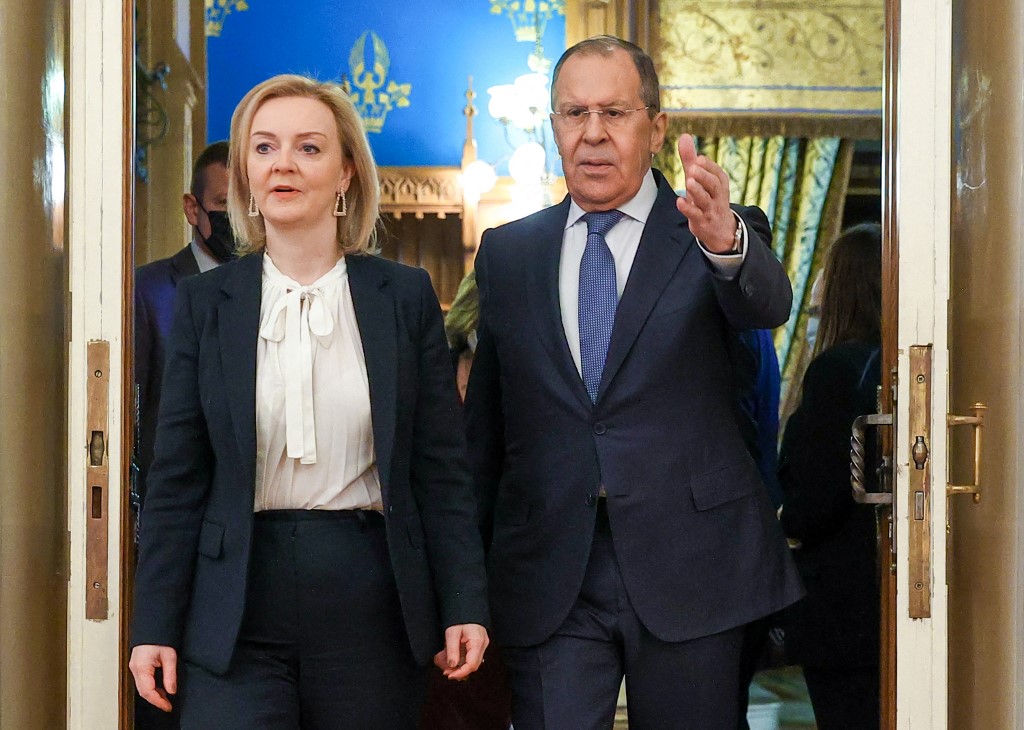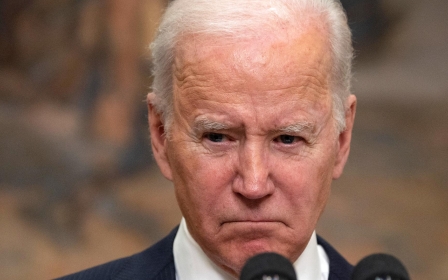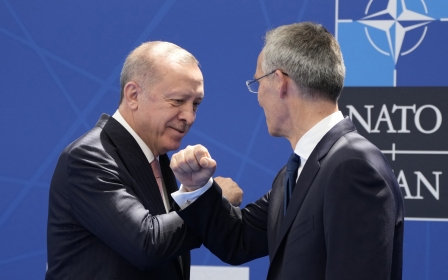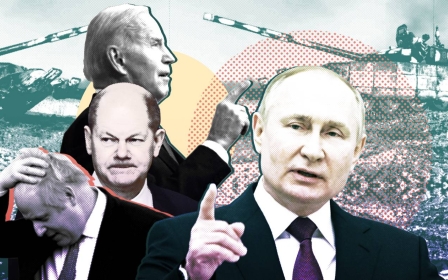Ukraine crisis underlines Brexit Britain’s marginalisation
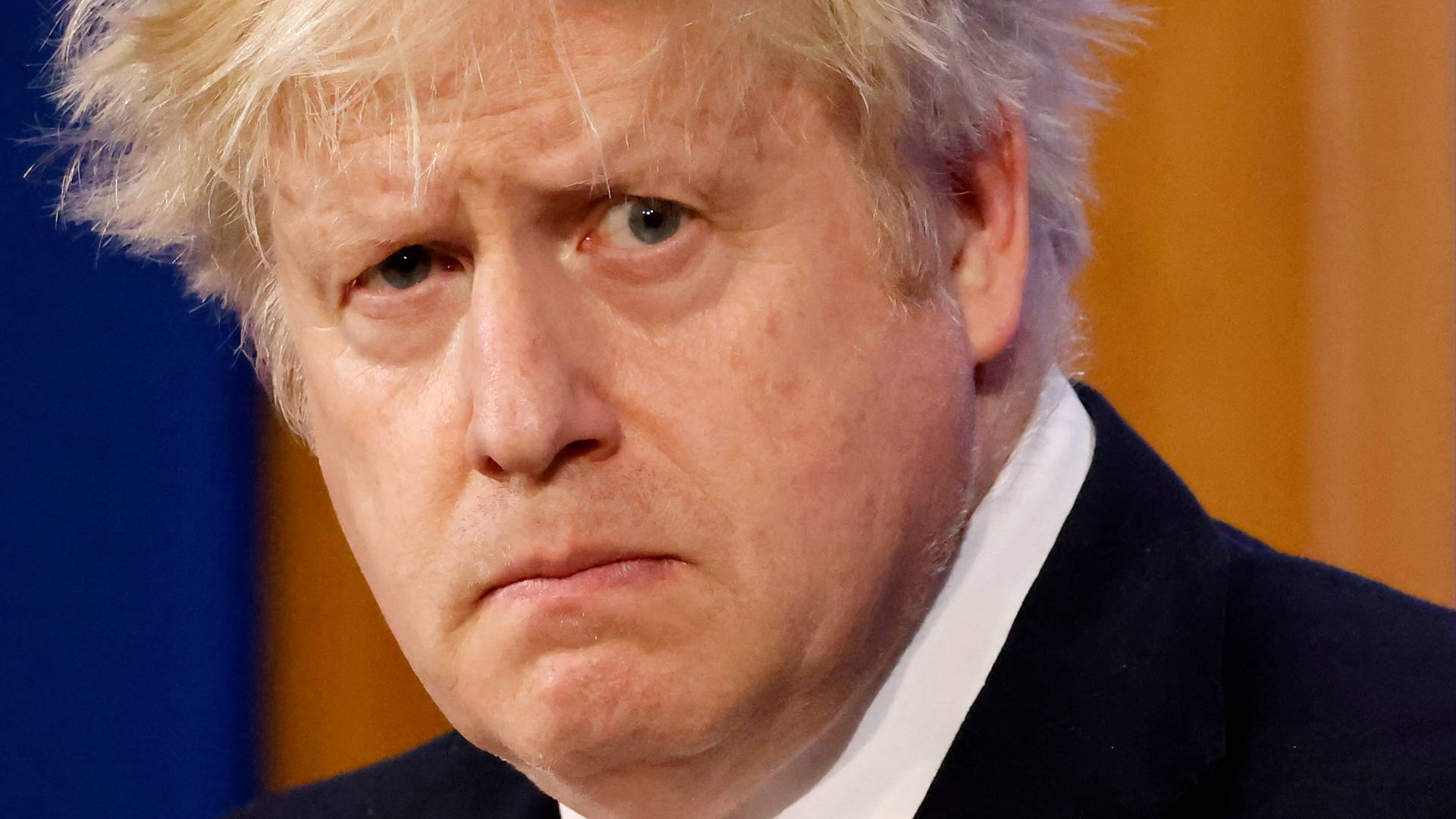
As tensions over Ukraine have risen, the UK government has been keen to play a lead role in the West’s collective response. Government ministers, including Prime Minister Boris Johnson, have been dispatched and military support has been sent to Kyiv. Yesterday Johnson announced a first tranche of sanctions, a somewhat limited focus on five banks and three individuals, with the promise of "more to come".
The Ukraine crisis serves as a good illustration of how Britain may struggle for diplomatic importance in the post-Brexit era
But welcome as these UK moves are by Kyiv and its other western allies, it is notable that London has rarely been at the centre of efforts to face down Russian President Vladimir Putin. Instead, it is France and Germany that have taken the lead supporting the United States.
The Ukraine crisis serves as a good illustration of how Britain may struggle for diplomatic importance in the post-Brexit era
While some have blamed Johnson and his domestic difficulties for this relative marginalisation, Britain’s diminished global power after Brexit is also a notable factor. In fact, the Ukraine crisis serves as a good illustration of how Britain may struggle for diplomatic importance in the post-Brexit era.
This is not to say the UK has been irrelevant in the crisis. In January, it became the first western government after the US to ship weapons to Ukraine, pledged £88m to Kyiv, and sent a limited number of special forces troops to help training. Yet this has not bought London particular influence. Johnson famously was snubbed by Putin when he tried to rearrange a phone call that the PM missed due to his addressing the "partygate" scandal in parliament.
New MEE newsletter: Jerusalem Dispatch
Sign up to get the latest insights and analysis on Israel-Palestine, alongside Turkey Unpacked and other MEE newsletters
Meanwhile, Foreign Secretary Liz Truss was insulted by Russian officials when she was in Moscow. The Russian press mocked Truss’s visit as a “complete failure” and noted that the Kremlin would do better to speak to the Americans, French and Germans.
Shift in global politics
In contrast, Paris has certainly proved a more significant player than London, with French President Emmanuel Macron personally leading a so-far unsuccessful effort to urge Putin to de-escalate. Indeed, it has been France, currently holding the rotating presidency of the EU, and Germany that the US has looked to in its efforts to deal with the Ukraine crisis.
London is present in the discussions, but not taking the lead. This is in marked contrast from past global crises, such as Iraq in 2003 and Libya in 2011 when, whether wise or not, British leaders were at the centre of US plans.
It is easy to blame Johnson for this marginalisation. His domestic troubles have diminished his government’s reputation, while he is personally mistrusted by other western leaders. In addition, his squabbles with the EU have frustrated not only Paris and Berlin, but also the US. However, while a new prime minister might improve personal relations, the UK is suffering structural disadvantages after Brexit that make it weaker on the global stage, whoever is in 10 Downing Street.
Global politics have shifted in recent years. The post-Cold War era of uncontested American dominance has given way to one of renewed great power competition. Showdowns such as the one in Ukraine are likely to be repeated elsewhere, with the West, Russia and/or China facing each other off over contested territory. In such crises, few want to entertain direct conflict between the great powers, so instead military power serves as a means to force negotiation - either through direct threats or via proxies.
In such an era, external powers like the UK have three useful assets: military strength and economic powers to push Russia, China or whoever else towards negotiation; and diplomatic heft to achieve a successful outcome.
Brexit has diminished two of these assets for the UK. Its diplomatic heft has been damaged by leaving the EU. It no longer has the force multiplier of being part of the world’s largest trading bloc. While Macron can go to Moscow as president of Russia's biggest market, Johnson will never be able to. Similarly, the process of divorcing from the EU has damaged London’s diplomatic credibility. Its threats to break international law and acrimonious negotiations have hit the UK’s reputation, shredding its diplomatic "soft power".
Economic power has also been hit. As a member of the EU, the UK was among the most hawkish and was often able to bring the bloc with it when it wanted to threaten rogue nations. It did this, for example, with Syria in 2011, with Britain and France leading the effort to sanction Damascus.
Sidelined
In Ukraine, by contrast, London must watch from the outside and hope the EU takes a firm line. Yet London’s post-Brexit economic weakness hampers it in other ways, too. The precariousness of the UK economy may have been behind Johnson’s relatively timid sanctions on Russia in response to it sending troops into Donbas - fearing the loss of Russian oligarchs’ money. More economically confident Germany, in contrast, was willing to shelve the major Nord Stream 2 gas pipeline.
Wherever the next crisis pops up in this era of great power competition, the UK will be there, but not as vocal, noticed or important as before
This leaves military power, an area that the UK has strengthened somewhat after Brexit, recognising that it is now a vital means for London to remain relevant in the western alliance. However, modest increases in funding, sending an aircraft carrier to east Asia, and dispatching "dozens" of troops to Kyiv is no substitute for the significant losses in economic and diplomatic power caused by Brexit.
One way to avoid being sidelined again in future international crises would be to invest heavily in the military. However, there is little political appetite for this given Covid-19 and Brexit-related budgetary constraints. It seems likely, therefore, that Britain’s relative marginality in Ukraine will become the norm in the coming years.
Wherever the next crisis pops up in this era of great power competition, whether in Taiwan and the South China Sea, the former Soviet republics or the Middle East, the UK will be there, but not as vocal, noticed or important as before.
While Johnson’s leadership doesn’t help, Brexit is the primary cause of this.
The views expressed in this article belong to the author and do not necessarily reflect the editorial policy of Middle East Eye.
Middle East Eye delivers independent and unrivalled coverage and analysis of the Middle East, North Africa and beyond. To learn more about republishing this content and the associated fees, please fill out this form. More about MEE can be found here.



